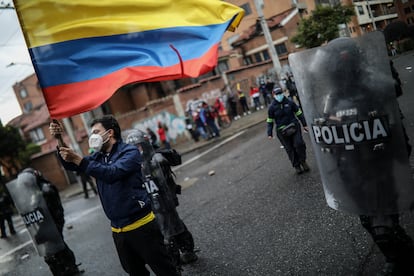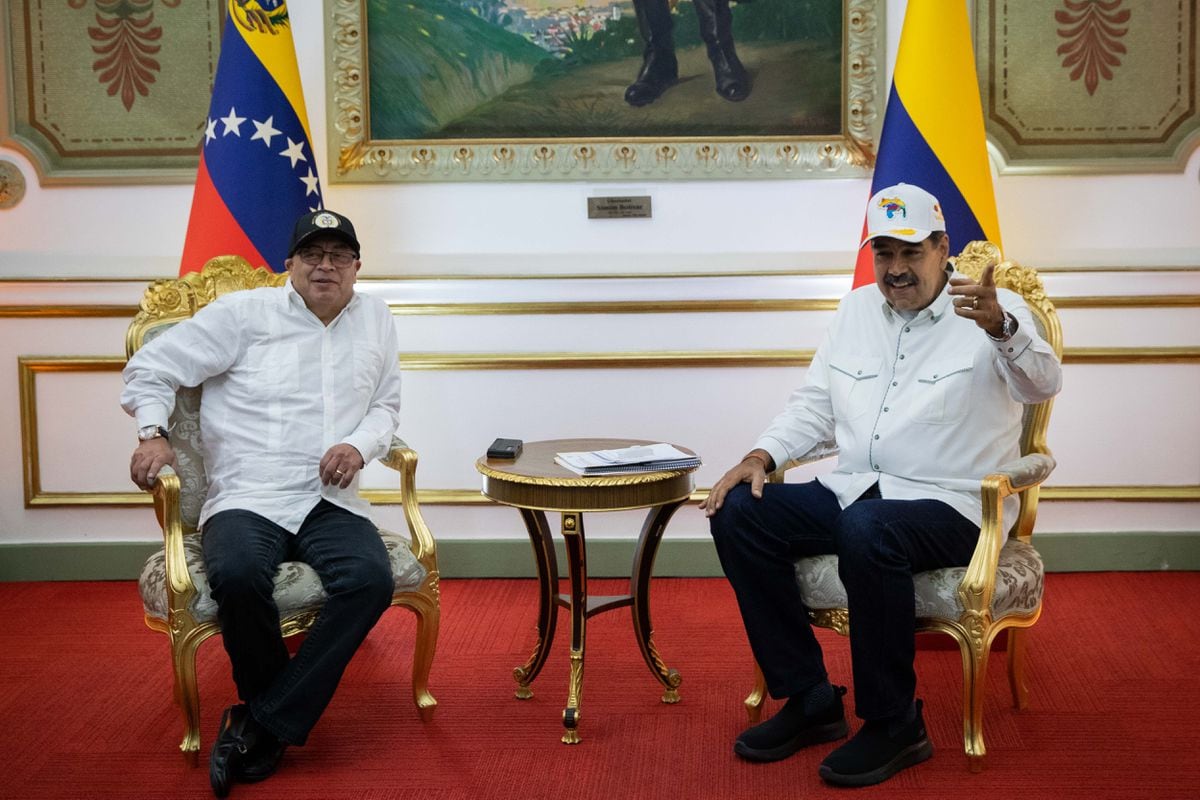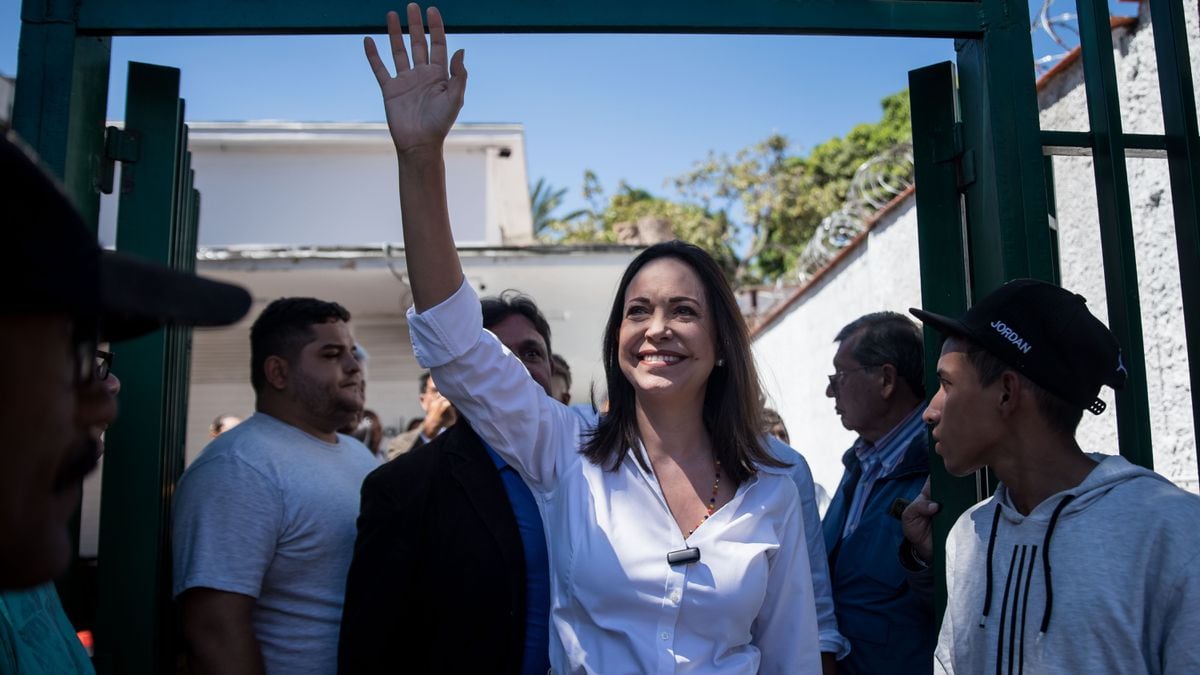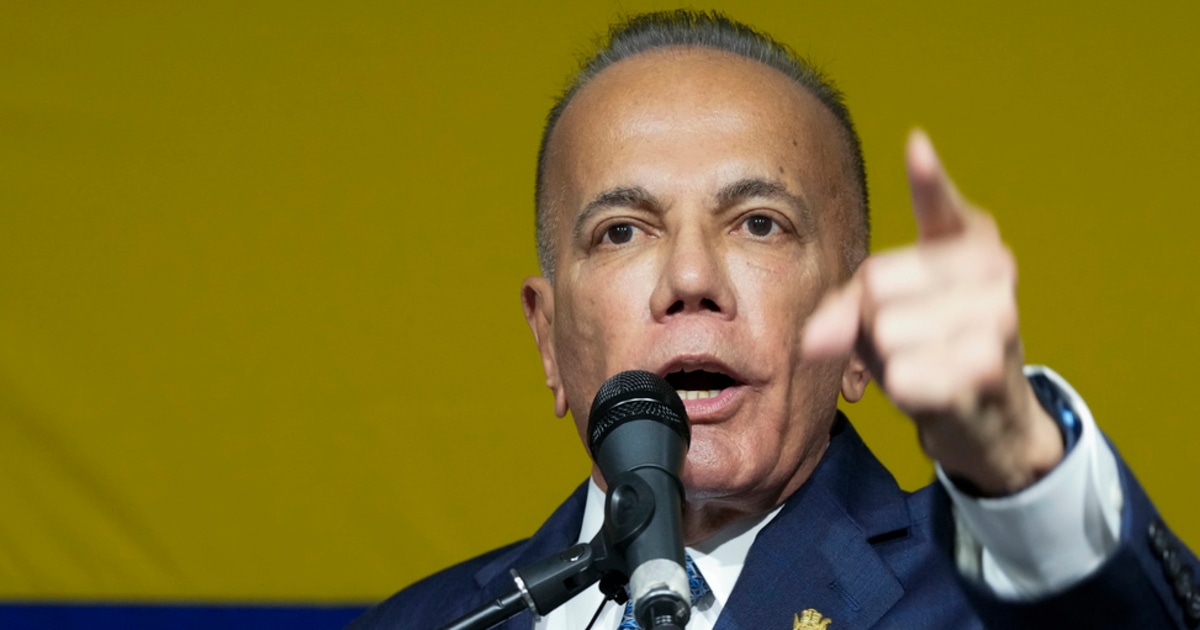Demonstrators protest against police brutality during the national strike, on May 1, IVAN VALENCIA
Next year's elections have long permeated any discussion in Colombia. Also the response to the unprecedented political crisis unleashed by the protests against the government of Iván Duque, and the repression with which the protesters have crashed. Besieged by the mobilizations that have taken over the streets, the president tries to resume the initiative with the dialogue that he has launched with different sectors, but the tension continues to skyrocket, with at least 26 deaths in the last week. The 2022 elections amplify controversies and condition the positions of all political actors.
"There is a desire to contribute to a broad process to find solutions to continue going through a difficult environment," Duque declared this Thursday without providing further details after the second session of dialogues, this time with the high courts.
From many shores they demand that the first days have been destined to meet with representatives of the institutionality, and that he has left for next week the appointment with the Unemployment Committee, the organizers of the most visible worker and student centrals of the peaceful mobilization.
More information
What is happening in Colombia?
The keys to a conflict that spreads across the country
The repression of protests seals Duque's divorce with young people
For now, mobilizations and riots have disrupted all political agendas and the president even suspended this week
Prevention and Action
, his controversial daily television program, which had been broadcast uninterruptedly for more than a year. The president, who is going through a prolonged popularity crisis, risked his worn-out political capital with a tax reform that opened the box of thunder. Although validated by economic experts, it was evidently inopportune. 82% of those consulted in a recent poll indicated that they would not vote for candidates who supported raising taxes.
Very weakened, Duque has given in to the protests, withdrew the tax reform proposal, accepted the resignation of his finance minister and proposed to seek a reform agreed with all political sectors. In essence, it poses a solution that has failed before. The dialogue proposed by the Government seems too similar to the "national conversation" with which it delayed the response to the first calls for the national strike, the wave of protests that had already surrounded it at the end of 2019. That fuse never went out of the All, despite the fact that the outbreak of the pandemic largely deactivated the protests that are returning today with unusual force.
From Uribism, the political tendency created around former president Álvaro Uribe, Duque's political mentor, fear that the president's unpopularity will become an electoral burden and have sought to preserve his heavy-handed flag. Uribe himself defended very early in the crisis that the police and the military have the right to use arms in protests, which further irritated spirits. Congressmen from the Democratic Center, the ruling party, have asked Duque to declare the internal commotion, which was previously known as a state of siege. It is a figure that, in the face of serious disturbances of public order, grants the president extraordinary powers. For now, the Executive has ruled out this measure and has attributed the rumors that it is being prepared as "false news".
In the ranks of the opposition, the mayor of Bogotá, Claudia López, who has maintained a pulse of leadership with Duque throughout the pandemic, has had to balance to deal with the excesses in the capital. “It must be recognized that there have been abuses from both sides. If only vandalism is rejected, but the abuse of force is not recognized, there is no way to start a dialogue, ”he declared this Wednesday about the difficult process of talks that Duque has started, after the nightly clashes had stopped. almost a hundred wounded, 19 of them policemen, and a mob tried to set fire to an Immediate Attention Command (CAI) with patrol cars inside who managed to escape.
“With whom we must dialogue is with those who are in the streets, who are young people, who for the most part neither study nor work. Young people who feel with pain that they have no future and that they are not being listened to, ”said López. That diagnosis was a dart aimed not only at Duque's strategy, but also at that of the leftist Gustavo Petro, to whom he claims to attribute the mobilizations without having set foot in the street. The mayor is the most visible leader of the progressive Green Alliance party, which has chosen to join other forces from the center of the political spectrum in the so-called
Coalition of Hope
by 2022
, in contrast to the
Historical Pact,
more heeled to the left.
,
promoted by the former mayor of Bogotá.
In the confusing and incipient pre-election scenario, the only clear thing is that Petro, also a former M19 guerrilla, is the rival to beat. In the midst of his turn to pragmatism, he has opted to project a presidential image in the crisis with two "speeches" about the national situation broadcast on his social networks. Although at times he has invited moderation, he has also had bitter public confrontations with the Minister of Defense, Diego Molano, and from Uribismo they brand him as an incendiary. “And if we do a march of a million people in Bogotá, are they measured? In complete peace, with all and all artists, with all art and culture with joy, without violence of any kind, with a single voice that asks Duque: Democracy and Peace. Would you accompany me? ”, He wrote in one of his most recent pronouncements,with the caudillista tone that so irritates his rivals.
Calls to stop the violence have become an outcry. A score of human rights organizations have requested the Inter-American Commission on Human Rights (IACHR) to visit the country in which it can document the complaints. The former Minister of Health Alejandro Gaviria has also been located there, who for the moment has ruled out a presidential candidacy. “The violence has to stop. This madness of destruction and death is meaningless. We have to be able as a society (all) to say no more to violence (wherever it comes from). We are going towards self-destruction ”, the current rector of the University of Los Andes has warned amid the vertigo of events.
Subscribe here
to the
EL PAÍS América
newsletter
and receive all the information keys on the region's current affairs







/cloudfront-eu-central-1.images.arcpublishing.com/prisa/NZ3KWMFSD5GELFE3GLHUROE4FE.jpg)







